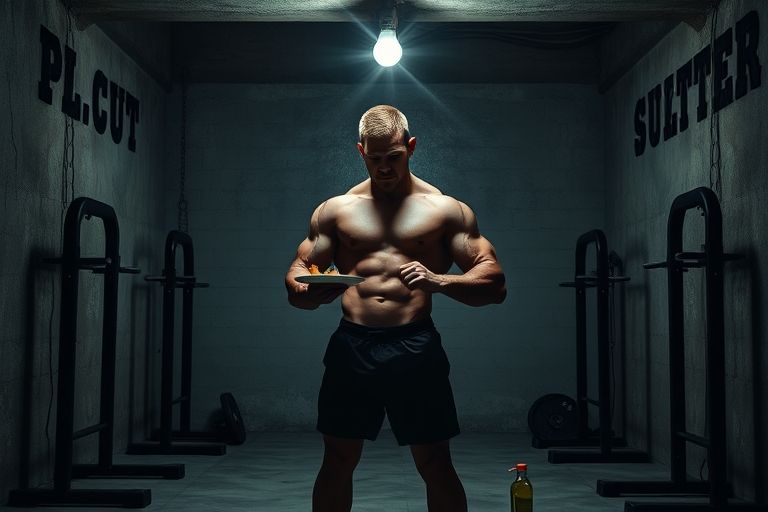

When it comes to achieving peak physical performance and building an impressive physique, bodybuilders are known to push the boundaries. From rigorous training routines to strict diet plans, they leave no stone unturned. In recent years, however, a controversial method has gained traction in the bodybuilding community - fasting. Let's delve into this unconventional approach, exploring its benefits, drawbacks, and whether it's a viable strategy for bodybuilders in 2023.
Fasting is the practice of abstaining from food and, in some cases, liquids for a set period. It has been around for centuries and is deeply rooted in various cultures and religions. From a bodybuilding perspective, fasting is often utilized as a dietary strategy to optimize body composition and enhance performance.
There are different fasting methods, such as intermittent fasting, alternate-day fasting, and extended fasting. Intermittent fasting involves cycling between periods of fasting and eating within a specific time frame, typically 16-20 hours of fasting followed by a 4-8 hour eating window. Alternate-day fasting, as the name suggests, involves fasting every other day, while extended fasting refers to longer periods of fasting, usually lasting more than 48 hours.
Despite its controversial nature, fasting has gained popularity among bodybuilders due to several potential benefits it offers. Let's explore some of these benefits:
Fasting can promote fat loss by reducing calorie intake and increasing the body's reliance on stored fat for energy. When the body is in a fasted state, it depletes glycogen stores, leading to a greater utilization of fat as a fuel source. This can aid bodybuilders in achieving a leaner physique and enhancing muscle definition.
Contrary to popular belief, fasting does not necessarily lead to muscle loss. In fact, studies suggest that short-term fasting may help preserve muscle mass by promoting autophagy, a cellular process that removes damaged proteins and organelles. Additionally, fasting can increase growth hormone levels, which play a crucial role in muscle growth and repair.
Fasting has been shown to improve insulin sensitivity, which refers to the body's ability to respond to insulin. Enhanced insulin sensitivity can facilitate nutrient partitioning, ensuring that nutrients are efficiently utilized for muscle growth and recovery. This can be particularly beneficial for bodybuilders aiming to optimize their nutrient intake and achieve better overall body composition.
Many individuals report improved mental clarity and focus during periods of fasting. This can be attributed to the metabolic adaptations that occur during fasting, such as increased ketone production. The rise in ketone levels can provide an alternative energy source for the brain, potentially enhancing cognitive function.
While fasting may offer several potential benefits, it's important to consider the drawbacks and limitations of this approach:
Fasting may impact nutrient timing, which plays a crucial role in muscle protein synthesis (MPS). MPS refers to the process by which the body builds new muscle proteins. Consuming protein-rich meals at strategic times, such as post-workout, is essential for maximizing MPS. Fasting may make it challenging to meet these nutrient timing recommendations.
Extended fasting periods can lead to reduced energy levels and potentially compromise training performance. Intense workouts require adequate fuel to perform optimally. Bodybuilders need to ensure they have enough energy to sustain their workouts and support muscle growth.
Like any dietary strategy, fasting may not be suitable or sustainable for everyone. Individual differences in metabolism, lifestyle, and personal preferences can influence adherence to fasting protocols. It's crucial to find an approach that aligns with an individual's needs and goals.
The viability of fasting as a strategy for bodybuilders in 2023 ultimately depends on individual circumstances and goals. While fasting may offer potential benefits such as fat loss and improved insulin sensitivity, it's important to consider the drawbacks and limitations.
For bodybuilders who can adhere to a fasting protocol without compromising their energy levels and training performance, fasting can be a valuable tool in optimizing body composition. However, it's essential to work closely with a knowledgeable coach or nutritionist who can provide personalized guidance and monitor progress.
In conclusion, bodybuilders and fasting remain a controversial topic in the fitness industry. With its potential benefits for fat loss, muscle preservation, and insulin sensitivity, fasting has piqued the interest of many bodybuilders. However, individual differences, nutrient timing considerations, and the impact on training performance must also be taken into account. As with any dietary strategy, it's crucial to approach fasting with caution and seek professional guidance to ensure it aligns with one's specific needs and goals.
Bodybuilders continue to explore new approaches to achieve their desired physique and performance goals. Fasting remains a controversial yet intriguing strategy that warrants further research and individual experimentation. As the fitness industry evolves, bodybuilders will undoubtedly continue to push the boundaries and challenge conventional wisdom.